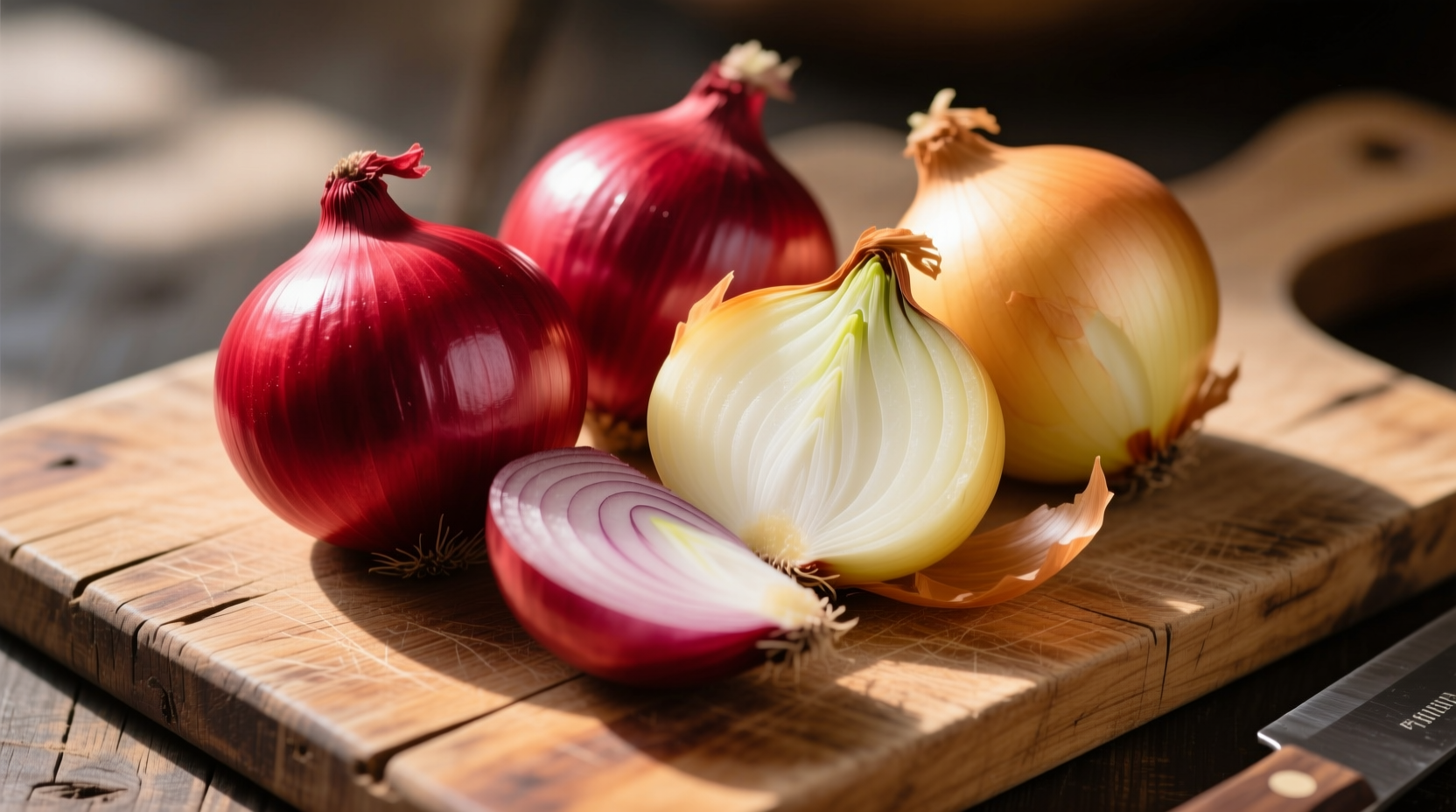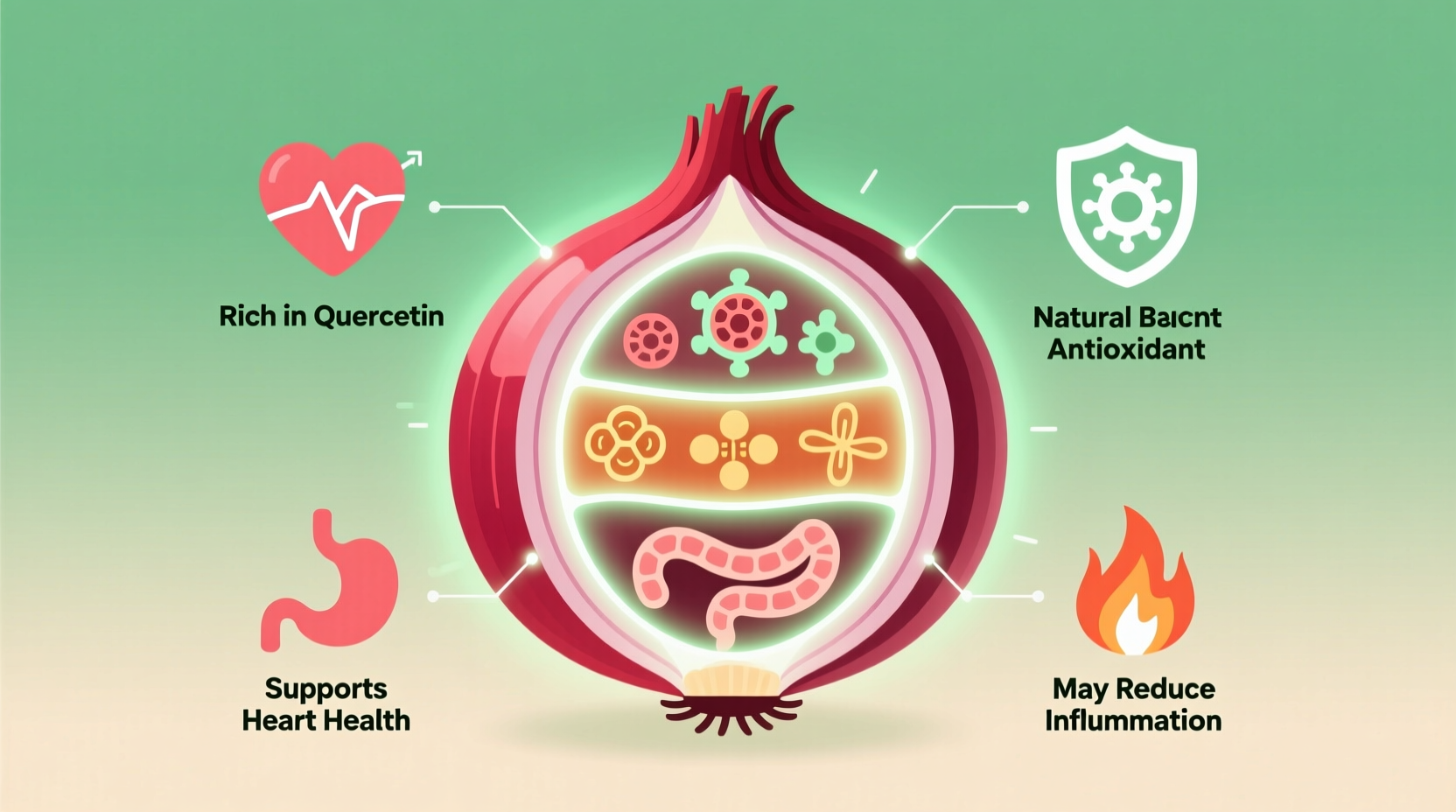Discover how this humble kitchen staple can transform your health regimen with scientifically-backed benefits that go far beyond flavor enhancement. Onions aren't just for cooking—they're nutritional powerhouses with decades of research supporting their role in disease prevention and overall wellness.
Why Onions Belong in Your Daily Diet
Onions have been used medicinally for thousands of years across various cultures, but modern science has uncovered precisely why this allium vegetable deserves a permanent spot in your kitchen. Unlike many "superfoods" that come and go, onions offer consistent, evidence-based health advantages accessible to everyone.
Core Health Benefits Backed by Science
Heart Health Protection
Onions contain powerful compounds that directly support cardiovascular function. The flavonoid quercetin, particularly abundant in red onions, has been shown to reduce blood pressure and improve endothelial function. A 2022 study published in the American Journal of Clinical Nutrition found that regular onion consumption correlated with a 17% lower risk of cardiovascular disease among participants who consumed at least 30g (about 1/4 cup) daily.
Sulfur compounds in onions also help prevent blood clot formation and reduce LDL cholesterol oxidation—key factors in atherosclerosis development. Unlike supplements, onions deliver these compounds in their most bioavailable form through natural food matrix.
Blood Sugar Regulation
For those managing blood glucose levels, onions offer significant advantages. The chromium content in onions enhances insulin sensitivity, while the compound S-methylcysteine sulfoxide helps regulate blood sugar. Research from the National Center for Complementary and Integrative Health demonstrates that onion extract significantly reduced fasting blood glucose in clinical trials.
| Preparation Method | Glycemic Impact | Key Compounds Preserved |
|---|---|---|
| Raw onions | Lowest (GI 10) | Maximum quercetin, sulfur compounds |
| Gentle sautéing | Moderate (GI 15) | 70-80% of original compounds |
| Long cooking | Higher (GI 25) | 30-40% of original compounds |
Natural Anti-Inflammatory Effects
Chronic inflammation underlies many modern diseases, and onions provide natural anti-inflammatory compounds without side effects. Quercetin inhibits the production of inflammatory enzymes like cyclooxygenase, similar to how NSAIDs work but without gastrointestinal risks. A comprehensive review in Nutrients journal concluded that regular onion consumption significantly reduces markers of inflammation including C-reactive protein and interleukin-6.
Cancer Prevention Potential
Multiple population studies indicate a correlation between onion consumption and reduced cancer risk, particularly for gastrointestinal cancers. The National Cancer Institute notes that organosulfur compounds in onions may inhibit tumor growth by blocking cancer cell proliferation and inducing apoptosis (programmed cell death). While not a cure, incorporating onions as part of a varied vegetable intake contributes to cancer-preventive dietary patterns.
Practical Implementation Guide
Maximizing Nutritional Benefits
To get the most health benefits from onions:
- Wait before cooking: After cutting onions, wait 5-10 minutes before cooking to allow beneficial compounds to fully develop
- Include the layers: The outer layers contain the highest concentration of quercetin—don't discard them unnecessarily
- Pair with healthy fats: Consuming onions with olive oil or avocado enhances absorption of fat-soluble compounds
- Vary your types: Different onion varieties offer unique benefits—red onions for quercetin, yellow for sulfur compounds, scallions for vitamin K

Daily Incorporation Strategies
You don't need dramatic dietary changes to benefit from onions. Simple additions include:
- Add raw red onions to salads (1/4 cup provides substantial quercetin)
- Include onions as the flavor base in soups, stews, and sauces
- Make quick-pickled onions for sandwiches and tacos
- Add scallions to morning eggs or grain bowls
- Blend cooked onions into dips and spreads
Important Considerations and Limitations
While onions offer numerous benefits, certain considerations apply:
When Onions Might Not Be Ideal
Onions belong to the FODMAP group of carbohydrates, which can trigger digestive discomfort in sensitive individuals, particularly those with IBS. If you experience bloating or gas after eating onions:
- Try cooking onions thoroughly, which breaks down some FODMAPs
- Start with small amounts (1-2 tablespoons) and gradually increase
- Consider using the green parts of scallions, which are lower in FODMAPs
- Consult a registered dietitian for personalized guidance
Realistic Expectations
Onions are a valuable component of a healthy diet but not a miracle cure. Their benefits work cumulatively as part of an overall balanced eating pattern. No single food can compensate for poor dietary habits, but incorporating onions regularly contributes to the synergistic effects of a diverse plant-rich diet.
Scientific Consensus Timeline
Research on onion health benefits has evolved significantly:
- 1980s: Initial identification of quercetin in onions and basic antioxidant properties
- 1990s: Recognition of sulfur compounds' cardiovascular benefits
- 2000s: Population studies linking onion consumption with reduced stomach cancer risk
- 2010s: Understanding of prebiotic effects on gut microbiome
- 2020s: Clinical trials confirming blood pressure and blood sugar regulation effects
Conclusion: Making Onions Work for You
Onions represent one of the most accessible and scientifically supported functional foods available. By incorporating just 1/2 cup of onions daily through simple cooking techniques, you can harness their cardiovascular, metabolic, and anti-inflammatory benefits. The key is consistency—regular consumption as part of a varied vegetable intake delivers the most significant health advantages. Start small, experiment with different preparation methods, and discover how this humble vegetable can transform your health from the inside out.











 浙公网安备
33010002000092号
浙公网安备
33010002000092号 浙B2-20120091-4
浙B2-20120091-4